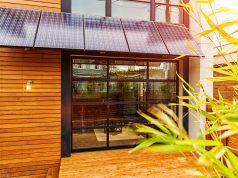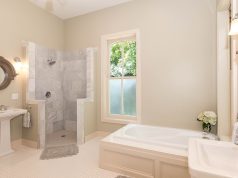As climate change becomes a more mainstream topic of conversation, an increasing number of homeowners are looking to make eco-friendly additions to their properties. However, with many eco measures still largely in their infancy, will eco-homes ultimately be harder to sell in the long term? Danny Luke, managing director of property buying company Quick Move Now, gives us his thoughts.
Demand from buyers is strong, in certain demographics
In recent polls, demand for eco-friendly features has been strong. Environmentally conscious consumers are driving demand in a wide range of business markets, and the property market is no exception. The key challenge for those looking for eco-friendly property features is whether they have the investable capital to afford them. Younger buyers often struggle financially to get a foot on the property ladder, so for many the choice of paying extra for eco-friendly features simply isn’t viable.
New eco-friendly technologies are being developed all the time, and many are becoming more mainstream
As more eco-friendly technologies are developed, and more become widely available, they will become a common expectation when purchasing a property. Environmentally friendly features such as energy saving lighting, smart thermostats and solar panels, which were once few and far between, are now prominent in homes up and down the country.
Eco-friendly measures are increasingly being considered at the point of design for new build homes
Energy efficiency and eco-friendly features are now increasingly considered during the architectural process. As more and more eco-friendly new build properties enter the market, such features will become the norm.
Ultimately, the more common eco-friendly features become, the more ‘normal’ they will be at the point of selling.
Features such as solar panels, which at one time would have slowed down a property sale simply due to a conveyancing solicitor’s unfamiliarity with them, are now commonplace. The same will be the case for other eco-friendly features.
Newer technologies may provoke questions at the point of sale, but if your property is marketed effectively, by a well-prepared estate agent, this shouldn’t be too much of a barrier. Demand is strong in the right demographic, so it’s simply a case of finding your target audience.
In terms of the conveyancing process, once a sale has been agreed, the only type of eco-home that would be harder to sell would be one that is of unusual construction, such as a pre-fabricated structure. This is simply because any property that is not constructed with bricks and mortar can be challenging to secure a mortgage on.














